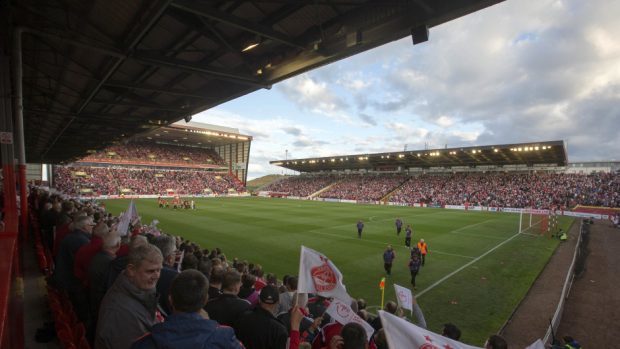A total of 20 football hooligans have been charged across the north and north-east under controversial legislation aimed at cracking down on sectarianism at matches.
Figures released by the Scottish Government show 11 people were arrested in Aberdeen and nine in the Highlands over the course of 2015/16.
The number of people in the two areas charged under the Offensive Behaviour at Football Act has increased by seven since 2014/15.
However, the number of Dons fans charged under the act has plummeted from 30 in 2014-15 to just eight in the last financial year.
Across Scotland, a total of 287 charges were brought under the part of the law which deals with fans singing sectarian songs or chanting sectarian slogans at or around matches – a rise of 49% from the previous year.
Justice Secretary Michael Matheson said the new figures, reported by the Crown Office and Procurator Fiscal Service, showed the Offensive Behaviour at Football and Threatening Communications (Scotland) Act “continues to be an important tool” for the authorities dealing with the problem.
The laws came into force at the start of March 2012 after the SNP used its then majority to put the legislation through Holyrood despite criticism from opposition parties and many football supporters.
The number of charges in 2015/16 is higher than the first full year of the act’s implementation, when 267 were brought in 2012/13.
Meanwhile, a total of 87% of those charges which were brought last year led to court proceedings.
Mr Matheson said: “The recent appalling scenes at the Scottish Cup Final demonstrated that the unacceptable behaviour of a minority of football fans continues to be a problem.
“An increase in the number of charges under the Offensive Behaviour Act shows that the legislation continues to be an important tool in tackling all forms of offensive behaviour, including sectarianism, and sends a clear message that such behaviour has no place in a modern, open and inclusive society.
“I have asked Scottish football to take further steps to address this long-standing issue and I expect to see progress on this imminently.”
Both Scottish Labour and the Scottish Conservatives believe the Offensive Behaviour Act is unnecessary and are arguing for its repeal.
